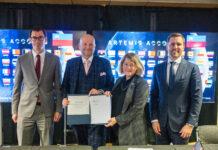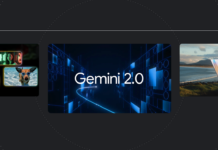Deutsche Telekom’s Practices Threaten Net Neutrality and Open Internet
In today’s digital age, consumers expect their telecom providers to offer reliable internet connections that allow them to access the content they desire quickly and efficiently. Unfortunately, Deutsche Telekom is currently jeopardizing the principles of net neutrality and the open internet. By leveraging its market power, Deutsche Telekom is effectively placing its German subscribers behind a paywall, potentially limiting their access to internet services that do not pay the telecom giant.
Breakdown in Negotiations
After several months of discussions, it is both surprising and disappointing to see the negotiations between Meta and Deutsche Telekom fall apart. Meta has made concerted efforts to ensure its applications remain directly accessible via Deutsche Telekom. However, due to a recent court ruling regarding the exorbitant and unacceptable fees demanded by Deutsche Telekom, Meta has now opted to route its network traffic through a third-party transit provider instead of exchanging traffic directly with Deutsche Telekom.
The Role of Transit Providers
Transit providers play a crucial role in connecting services and networks across the internet, especially when direct connections are not feasible. Meta is hopeful that Deutsche Telekom has taken the necessary steps to ensure that the user experience for its apps, as well as other third-party services such as video streaming platforms, will not suffer in Germany due to this shift to a third-party transit provider.
Importance of Direct Peering Relationships
Direct peering relationships are essential for enabling internet-delivered services to be accessed by telecom customers. Meta, along with numerous other internet companies, maintains reciprocal no-cost (settlement-free) relationships with thousands of telecom providers worldwide. These relationships are the accepted global standard and operate settlement-free because they are mutually beneficial: content providers like Meta invest in products and services that people want to use, while telecom providers like Deutsche Telekom monetize internet access.
Benefits of Settlement-Free Relationships
Settlement-free relationships ensure that consumers enjoy excellent online experiences. The Body of European Electronic Communications Regulators (BEREC) recognizes peering as the most fair and cost-effective way to meet end-user expectations. Numerous studies indicate the substantial value that internet-delivered services bring to telecom providers.
Meta’s Investments in Digital Infrastructure
Meta’s contribution to telecom providers extends beyond the value of its services. In 2022 alone, Meta invested over €27 billion globally in digital infrastructure that helps reduce costs for telecom providers, including Deutsche Telekom. Meta also continues to enhance its edge network, which reduces latency and significantly lowers costs for telecom providers by bringing content closer to consumers.
The Global Implications
The practices of Deutsche Telekom have far-reaching implications, setting a dangerous global precedent that threatens the goals of net neutrality and an open internet. This jeopardizes the online experience for consumers, communities, and businesses around the world. Meta remains hopeful that a future agreement can be reached, ensuring that Deutsche Telekom subscribers can continue to access Meta’s apps as expected when they pay Deutsche Telekom for internet connectivity.
Conclusion
The ongoing dispute between Meta and Deutsche Telekom highlights the critical importance of maintaining net neutrality and the principles of an open internet. Consumers rely on these principles for unrestricted and efficient access to online content. It is essential for telecom providers and content providers to work together in a mutually beneficial manner that upholds these values. The future of the digital landscape depends on it.
For more detailed insights, you can refer to the official publications from BEREC and other relevant studies linked within the article.
For more Information, Refer to this article.


































